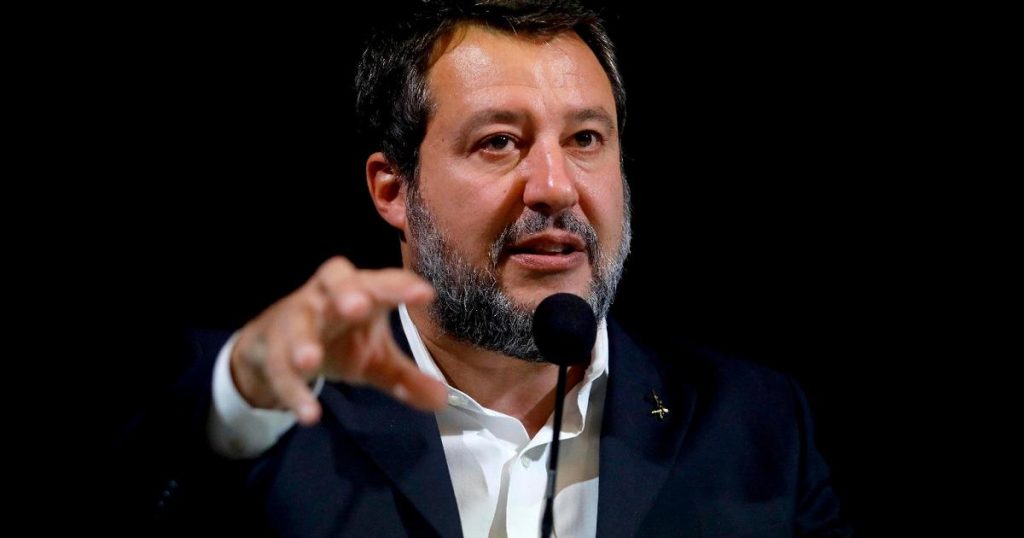Matteo Salvini has introduced a new initiative called “Salva-case,” aimed at regularizing minor discrepancies within homes in order to put a multitude of properties back on the market and assist thousands of Italians who are unable to buy or sell homes due to small infractions. However, opposition parties have criticized the proposal, labeling it as a new housing amnesty that rewards those who break the rules. Even Prime Minister Giorgia Meloni expressed surprise at the announcement, stating that she was unaware of the details of the proposal and could not pass judgement without further information. The Ministry of Infrastructure unveiled the plan after Salvini met with various associations, businesses, and institutions, outlining the guidelines without delving into specifics. These measures are said to impact nearly 80% of Italy’s real estate assets, according to a study conducted by the national council of engineers.
Last month, Salvini hinted at this initiative during a question time session in Parliament. The exact process for implementing the project remains unclear, but there is talk of an urgent intervention. It is possible that a new decree could be issued, or the regulations may be presented to Parliament as an amendment. A coherent text for these issues already exists in the form of the DL superbonus. The goal of the Ministry of Infrastructure is to rectify formal discrepancies related to interpretive uncertainties in regulations, as well as internal structural discrepancies within individual properties where owners have made minor modifications, such as partition walls and mezzanines. The objective is also to address discrepancies that were not rectified at the time of construction due to current regulations that prevent retroactive permissions for many projects over time, and to allow for changes in the use of properties among similar categories.
Opposition parties have criticized Salvini’s proposal, describing it as yet another housing amnesty designed to rectify abuses and illegal renovations. The Democratic Party’s Chiara Braga and Francesco Boccia have accused Salvini of promoting a classic move by the right-wing, offering amnesty to anyone, especially during election campaigns. Opposition lawmaker Angelo Bonelli labeled the proposal as a “salva-Lega” measure, asserting that it is indeed a housing amnesty. However, industry associations have come forward to defend the measures, dismissing these criticisms. Confedilizia has expressed support for the initiative, stating that it aims to provide property owners with more clarity and facilitate the sale of properties. ANCE’s vice president, Stefano Betti, clarified that the proposal targets minor formal discrepancies within homes predating 1977, emphasizing that it is not a full-scale amnesty but rather a short-term solution amidst the broader challenges facing the housing sector in the medium and long term.
Overall, Matteo Salvini’s “Salva-case” initiative aims to address minor infractions within homes to make more properties available on the market and assist Italians facing difficulties in buying or selling homes due to technicalities. While the proposal has been criticized by opposition parties as a housing amnesty granting leniency to rule-breakers, industry associations have voiced their support for the measures. The precise implementation process for the initiative is yet to be determined, with discussions ongoing regarding whether it will be introduced through a new decree or as an amendment to existing legislation. The Ministry of Infrastructure is focused on rectifying formal discrepancies and internal structural issues within properties, aiming to provide property owners with more certainty and facilitate property transactions. Despite the differing opinions, the debate surrounding Salvini’s proposal highlights the complex challenges faced by the housing sector in Italy and the need for comprehensive solutions in the long term.


